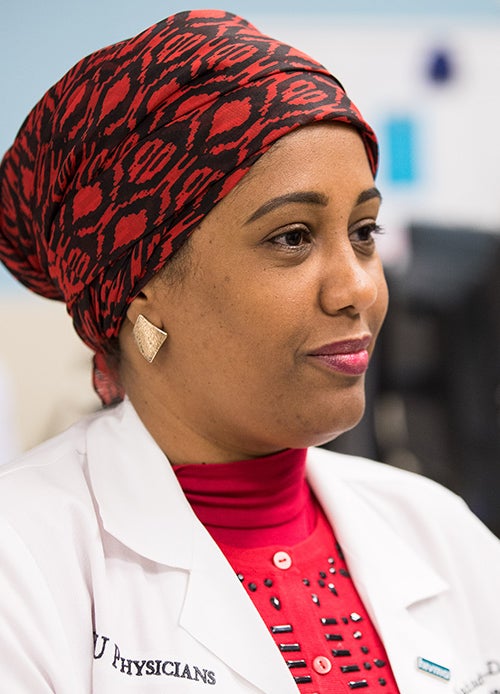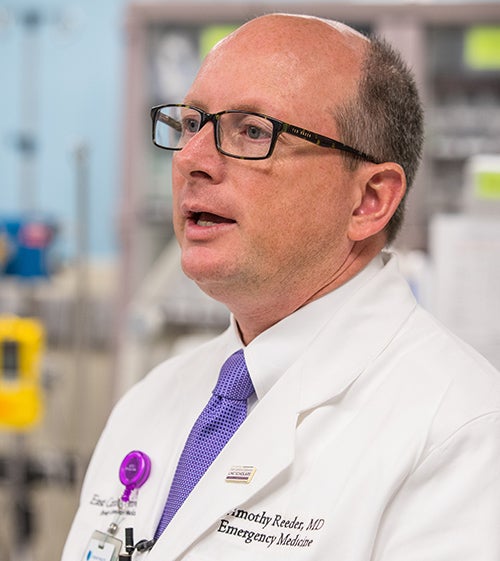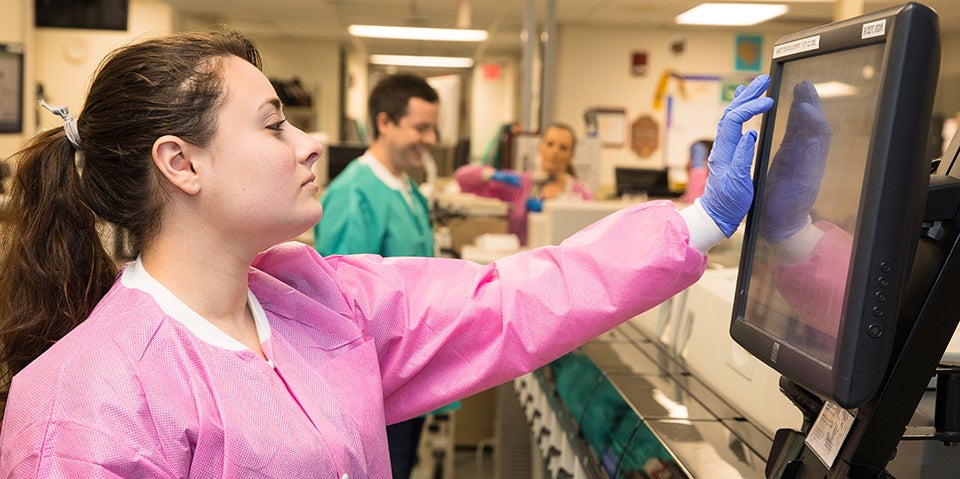EARLY INTERVENTION
ECU receives grant to fund HIV testing in the emergency department
A new grant awarded to East Carolina University’s Brody School of Medicine will support routine HIV blood testing for patients who come to Vidant Medical Center’s emergency department and will help connect patients with HIV support services.
Physicians announced their receipt of the grant Dec. 1, World AIDS Day. They’re hoping the yearlong $200,000 award from the biopharmaceutical corporation Gilead Sciences Inc., will go a long way toward preventing the spread of the disease in the East.
They also hope it will improve the lives of eastern North Carolinians living with HIV – the virus that causes AIDS (Acquired Immunodeficiency Syndrome), a disease that affects the body’s ability to fight infection. AIDS is usually transmitted through intravenous drug use or sexual intercourse.
The grant will support the cost of testing for uninsured patients, plus the hiring of an outreach coordinator who will help educate patients and link them to an array of prevention and care services in the region.
“It’s fair to say that HIV is an epidemic in eastern North Carolina,” said Dr. Nada Fadul, infectious diseases specialist in ECU’s internal medicine department. “Eastern North Carolina bears a higher burden of HIV/AIDS compared to the rest of the state.”

ECU physician Nada Fadul discuss their grant at a press conference on World AIDS Day.
Fadul said Pitt County has about 18 per 100,000 people infected annually. Edgecombe County, on the other hand, has 40 per 100,000.
Poverty and lack of education – both prevalent throughout Vidant’s 29-county service area – are risk factors for HIV infection, she said. And because many patients in this region lack access to primary health care, they often seek medical attention through the emergency department.
The new project, expected to begin in February 2017, will support the testing of patients ages 18 to 65 who don’t know their HIV status.
“It’s estimated that about 13 to 15 percent of patients living with HIV do not know they are infected,” says Fadul. “So they may be spreading the disease without knowing it.”
The grant will allow approximately 8,000 uninsured patients to receive a simple blood test that will tell them whether they’re infected, she said.
“If we can identify them early, we know that with the treatments we have now, the life expectancy of a patient with HIV is no different than the general population,” said Dr. Timothy Reeder, vice chair for clinical operations in ECU’s Department of Emergency Medicine.

ECU physician Timothy Reeder discusses their grant at a press conference on World AIDS Day.
One of the services that HIV-positive patients may be referred to is ECU’s Infectious Diseases Clinic. According to Ciarra Dortche, HIV outreach coordinator there, the clinic currently serves more than 1,500 HIV-positive patients across eastern North Carolina. Eighty percent of those patients are treatment-adherent – a figure that surpasses state recommendations.
The clinic is federally funded through the Ryan White HIV/AIDS Program and embraces a comprehensive approach to treating people living with HIV infection and AIDS, Dortche said.
“Some of the services we provide include behavioral, mental and substance abuse counseling; medical case management; partner notification; nutrition assistance; transportation assistance; housing assistance; support meetings; community-based educational programs; medication, copayment and primary care payment assistance,” she said.
Dortche said in North Carolina, the most common mode of HIV transmission is homosexual contact between males. Most HIV-infected women in the state were infected through heterosexual contact with males. African-American and Hispanic women experience higher infection rates than other races and ethnicities of women, she said.
Dr. Richard Baltaro of ECU’s Department of Pathology is also a contributor to the project.

Clinical Lab Science student Mallory Wiederspiel and senior medical technologist Chris Waters work on loading HIV testing samples.
